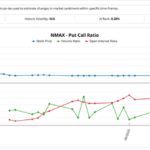As one of the largest providers of dealership management systems (DMS) in North America, CDK Global serves thousands of dealerships and automotive service centers. When the attack hit, it didn’t just affect CDK; it sent shockwaves through the entire auto retail ecosystem. This article explores the nature of the cyber attack, its consequences, and what businesses can learn from it.
What Is CDK Global?
CDK Global is a leading software-as-a-service (SaaS) company that provides dealership management systems (DMS), digital marketing tools, CRM platforms, and financial services to car dealerships. Its software is used by more than 15,000 dealerships across the United States and Canada, handling everything from inventory management to service scheduling, finance, and customer relations.
The Cyber Attack: What Happened?
In June 2025, CDK Global experienced a massive ransomware attack that forced it to shut down critical systems across the board. CDK quickly responded by taking its systems offline to prevent further damage, which resulted in widespread disruption for its dealership clients.
Timeline of Events:
- June 18, 2025 – CDK detects suspicious activity on its servers.
- June 19, 2025 – CDK confirms a ransomware attack and begins system shutdown.
- June 20-25, 2025 – Most DMS and support systems remain offline, crippling operations.
- End of June – Partial restoration begins, but many clients report lingering issues.
Industry-Wide Impact
The CDD cyber attack created chaos in auto dealerships nationwide. Dealerships were unable to:
- Access customer records
- Process sales
- Schedule services
- Complete vehicle financing
- Conduct daily operations
Many dealerships reverted to pen and paper to continue business, a practice that hadn’t been used in decades. This caused long wait times, missed sales opportunities, and a breakdown in customer service. In some regions, the inability to process transactions led to temporary dealership closures.
Financial Impact
- CDK’s estimated losses: Over $100 million in direct damages and lost business.
- Legal and regulatory fallout: Possible lawsuits and class actions are expected.
Who Was Behind the CDK Cyber Attack?
While investigations are ongoing, cybersecurity experts believe the attack was carried out by a sophisticated ransomware group, possibly linked to Eastern Europe. Initial reports suggested that the group used phishing emails to gain access to internal CDK systems, followed by privilege escalation and encryption of critical files.
Authorities are collaborating with FBI cybercrime units, private security firms, and international law enforcement to track down the perpetrators.
How Did CDK Respond?
CDK issued multiple statements acknowledging the attack and informing clients of ongoing recovery efforts. They:
- Hired third-party cybersecurity experts
- Notified affected dealerships
- Engaged with law enforcement
- Worked around the clock to restore services
Despite their efforts, many dealerships and partners criticized CDK for a lack of transparency and slow communication, especially during the early days of the crisis.
Lessons for the Auto Industry
The CDD cyber attack was not just a company-specific incident; it highlighted major vulnerabilities in the entire auto tech infrastructure. Dealerships that rely heavily on centralized systems without local backups found themselves completely paralyzed.
Key Lessons:
- Cybersecurity Investment Is Critical
- Every dealership, whether large or small, must invest in cybersecurity tools, firewalls, endpoint protection, and training.
- Redundancy and Backups
- Businesses should maintain local data backups and contingency systems to ensure business continuity when cloud systems go down.
- Employee Training
- Training employees to detect suspicious emails can prevent such breaches.
- Vendor Risk Management
- Diversification and proper third-party risk assessments are crucial.
Customer Frustration and Reputational Damage
Customers were left waiting hours for simple transactions, while others experienced errors in billing, financing, and vehicle service histories. Social media platforms were flooded with complaints from angry customers who couldn’t get their cars serviced or purchased.
Some dealerships reported customers canceling purchases, unwilling to wait for systems to come back online.
CDK’s Future: Can Trust Be Rebuilt?
While CDK Global is working hard to rebuild its reputation, trust will take time to restore. Many clients are now exploring alternative DMS providers or investing in hybrid systems that offer more resilience against cyber threats.
CDK has announced plans to:
- Increase security budgets by 200%
- Implement multi-factor authentication across all systems.
- Launch a new cybersecurity division by the end of 2025
Government and Industry Response
The CDK incident has prompted federal agencies and automotive organizations to consider new regulations regarding cybersecurity in automotive tech.
The National Highway Traffic Safety Administration (NHTSA) and the Department of Homeland Security (DHS) are reportedly drafting new guidelines for:
- Data protection standards for automotive SaaS vendors
- Mandatory incident response plans
- Cybersecurity audits for large software providers
Final Thoughts
The CDK cyber attack will be remembered as a landmark event that exposed the fragility of the digital backbone supporting the auto industry. It serves as a powerful reminder that no company is too big or too secure to be targeted.
Auto dealerships, SaaS providers, and even individual consumers must remain vigilant, adaptive, and informed. As cyber threats grow more complex, proactive measures, not just reactive ones, will determine who thrives and who falls behind in the digital age.



